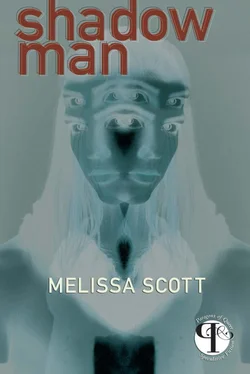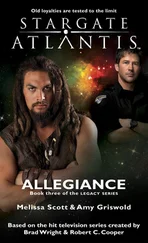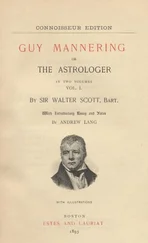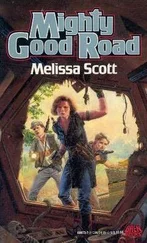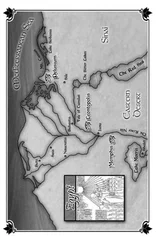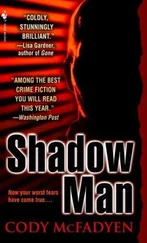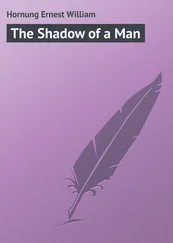“Maybe not,” Tatian answered, and didn’t sound convinced.
“Usually there are more, that’s all. At least there were on all the other planets.”
They crossed Tredhard Street just above Soushill Road—Warreven was careful to keep them away from that street, just in case the ghost ranas were active again—and the sound of drums was suddenly loud. Warreven looked toward the Harbor, felt his own pulse quicken, seeing Tatian’s sudden frown, relaxed as he saw the people gathered in the circle of lights just inside the Market square. “It’s all right,” he said aloud, “it’s just a regular rana.”
Tatian allowed himself a sigh of relief, and eased the jigg across the traffic. “How can one tell?”
Warreven looked back, seeing the drummers facing each other, lifted above the group around them by a makeshift platform, a sheet of fibreplast balanced on fuel cells, and the dancers with their clusters and knots of multicolored ribbon. “Ranas—real ranas—will always have drums or a singer, that’s what makes them legitimate, not political.”
“Not political?” Tatian said, in spite of himself, and Warreven grinned.
“Political according to the law, anyway. The way things have always been done, political gatherings can be suppressed—that’s supposed to be reserved to the mesnie s—but political gets defined as ‘getting together to talk about issues.’ If you dance and sing— particularly if you’re clever—it can’t be politics.”
“Oh, right,” Tatian said. “Like having dinner regularly with the Most Important Man is neither politics nor business.”
Warreven laughed. “Exactly like. Turn left here.”
Tatian swung the jigg onto the broad street that ran parallel to Harborside. “I bet it works, though,” he said, after a moment. “If you can’t say anything directly, but have to make it a song—no, you make it a symbol, don’t you? you have to talk in symbols—then you can’t ever move from opposition into the system. At least not without losing the power you had before.”
Warreven looked sideways at him, not liking what he’d heard. The ranas had real power, effective power—the very existence of the ghost ranas proved that; they wouldn’t take on the distorted image of true ranas if true ranas weren’t real—But it was true that it was hard to go from protest to holding office in the clans and Watches: the Modernists had been trying for years and still didn’t win the elections. Still, you won elections through compromise, through consensus, not debate, and the ranas, true ranas, were a powerful tool there. “You can tell real ranas by the ribbons, too,” he said. “Ranas are supposed to wear lots of colors—all the colors of the spectrum, supposedly, it’s to prove they’re not political—and they usually use ribbons. These days, nobody wears black, either.”
“I’ll remember that,” Tatian said. “I can’t say it was hard to recognize the ghost ranas when I saw them.” He paused. “None of this is making me feel any too happy with our agreement, Warreven. Tendlathe’s people are looking a lot more powerful than I thought.”
Warreven hesitated, debating a lie, then made a face. “More powerful than I’d thought, too. He’s got more support among the mosstaas than I’d realized.”
“Not good.”
That was, Warreven admitted, an understatement. He slanted another glance at the off-worlder, the strong planes of his face briefly highlighted as they passed a door lamp. “Killing Lammasin—that’s got to be too much, even for his people. And I—I don’t intend to be driven off, yet.”
Tatian nodded. “I figured. This is personal, right?”
Warreven blinked, startled, then shrugged. “In a way, certainly. But I’m not like Haliday. I—I’m sure you’ve heard the story, I could’ve married Tendlathe—”
“Lucky you,” Tatian said, under his breath, and Warreven grinned.
“—but I didn’t want to change gender. I’m perfectly happy as a man.”
“But—” Tatian broke off, shaking his head.
But you’re not a man . The words seemed to hang between them, and Warreven sighed. He had forgotten, for a moment, that he was talking to an off-worlder, who couldn’t see beyond the physical body. “Legally and by choice, I am. That’s what matters.”
“I know.” Tatian took his eyes off the road long enough to offer an apologetic grimace. “I do know. I’m sorry.”
Warreven nodded. “But you’re right, the situation’s more complicated than I thought. I’ll be very interested in what Temelathe has to say to me.”
“So would I be,” Tatian said. “If you can tell me.”
“I’ll do what I can,” Warreven answered.
They reached the Stane compound at last, and without being asked Tatian pulled up well outside the light from the gate. “I doubt it would do you any good to be seen with me, just at the moment,” he said, and Warreven nodded.
“Probably not. I appreciate the ride, very much.”
“Not a problem,” Tatian said, and shrugged. “I’m sorry I can’t stay. Do you want me to try to come back for you?”
Warreven shook his head, but he was obscurely pleased by the offer. “No, but thanks. I can get a ride from here.” He climbed out of the jigg before he could change his mind and stood for a moment leaning in the open door. “Be careful.”
Tatian nodded. “You, too.”
Warreven straightened, letting the door fall closed again be- hind him, and started toward the compound gate. He heard the whine of the engine as the jigg pulled away, but did not look back. There were four mosstaas guarding the gate, not the usual two—at least one of them armed, pellet gun and ironwood truncheon— and Warreven was careful to move slowly as he came into the light.
“I’m here to see Mir Temelathe,” he said. “My name’s Warreven.”
The leader of the mosstaas looked less than pleased, and Warreven resigned himself to the tedious ritual of identifying himself to their satisfaction. They let him through after a dozen questions and two calls to the house while he stood under the lights for the imported security cameras, and Warreven walked up the long curve of the drive, deliberately slow to give himself time to control his temper.
The housekeeper, the same woman Warreven had seen the last time, was waiting again on the steps, but this time Aldess Donavie was waiting with her. She looked completely recovered, very elegant in the off-world style that was just becoming fashionable in the Stanelands mesnie s, narrow trousers and vest under a heavily beaded shaal -cont. It looked like one of Folhare’s designs, Warreven thought, irrelevantly, and the housekeeper stepped back to hold the door open. Aldess came to meet him, holding out both hands. She knew her status—Tendlathe’s wife, Temelathe’s daughter-in-law, and blood daughter of Bradfot Donavie, the richest man on the Westland—and knew, too, that it would be acknowledged.
“Raven. It was good to see you at the reinstatement. I appreciated your coming.”
Warreven took her hands, aware of metal rings, a broad metal bracelet, bigger and heavier than his own, and they mimed a kiss. “Not at all. I was sorry to hear of your loss.”
Aldess waved that away. “I wish we’d seen you the other night. I know Tendlathe was disappointed.”
I bet, Warreven thought. In the hallway lights, her coat glowed the deep blood scarlet of ruby melons, its subtle woven floral outlined in glittering flecks of red glass. Not Folhare’s work—she was never so restrained in her designs, and besides, Aldess would never buy from her—but probably much more expensive. He said, “I was on business, and I didn’t want to interrupt the party.”
Читать дальше
